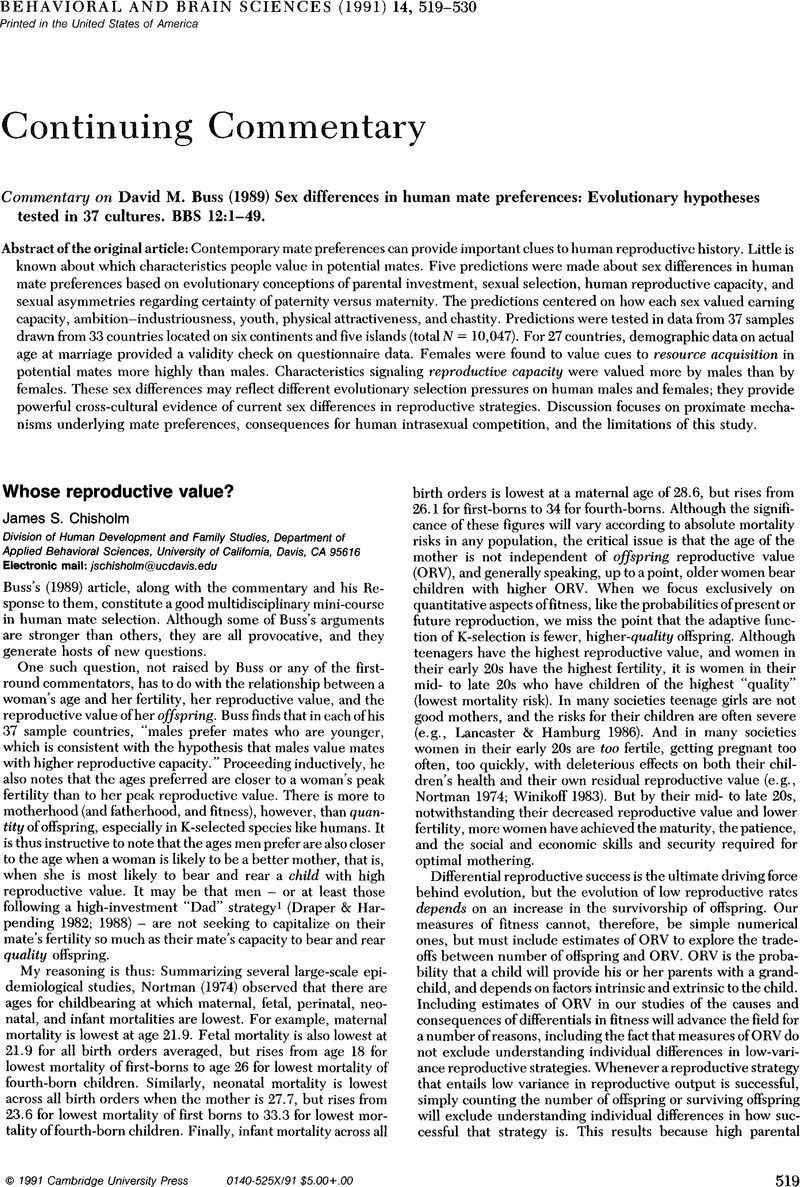Crossref Citations
This article has been cited by the following publications. This list is generated based on data provided by Crossref.
Hrdy, Sarah Blaffer
1997.
Raising Darwin’s consciousness.
Human Nature,
Vol. 8,
Issue. 1,
p.
1.
Kemkes, Ariane
2008.
Is perceived childlessness a cue for stereotyping? Evolutionary aspects of a social phenomenon.
Biodemography and Social Biology,
Vol. 54,
Issue. 1,
p.
33.
Buss, David M.
and
Shackelford, Todd K.
2008.
Attractive Women Want it All: Good Genes, Economic Investment, Parenting Proclivities, and Emotional Commitment.
Evolutionary Psychology,
Vol. 6,
Issue. 1,
Gouda-Vossos, Amany
Nakagawa, Shinichi
Dixson, Barnaby J. W.
and
Brooks, Robert C.
2018.
Mate Choice Copying in Humans: a Systematic Review and Meta-Analysis.
Adaptive Human Behavior and Physiology,
Vol. 4,
Issue. 4,
p.
364.
Buss, David M.
and
Schmitt, David P.
2019.
Mate Preferences and Their Behavioral Manifestations.
Annual Review of Psychology,
Vol. 70,
Issue. 1,
p.
77.
Lai, Ji
Ding, Daoqun
Chen, Xinling
and
Li, Shenglan
2021.
Can Sexual Appeal, Beauty, or Virtue Increase the Opportunity for a Woman to Be Selected as a Spouse? The Mediating Role of Human Uniqueness.
Frontiers in Psychology,
Vol. 12,
Issue. ,
Arnocky, Steven
Davis, Adam C.
and
Suszter, Michael
2022.
The Cambridge Handbook of Evolutionary Perspectives on Sexual Psychology.
p.
118.
2022.
The Cambridge Handbook of Evolutionary Perspectives on Sexual Psychology.
p.
1.


